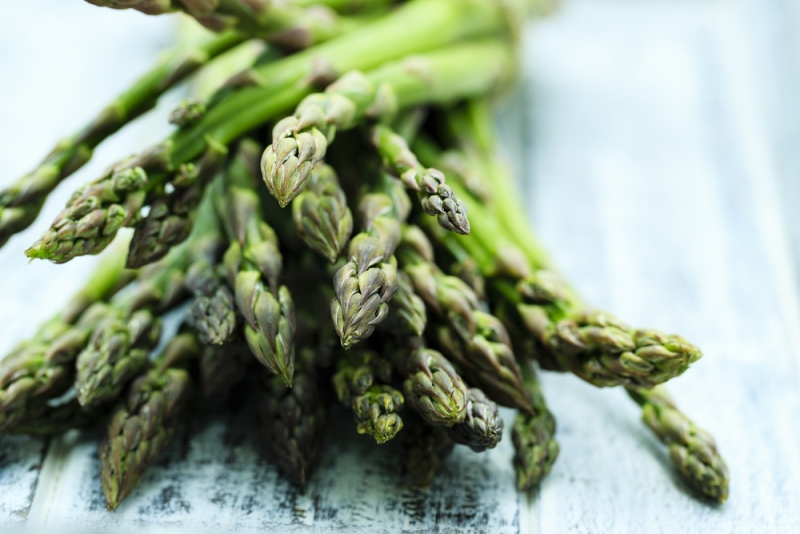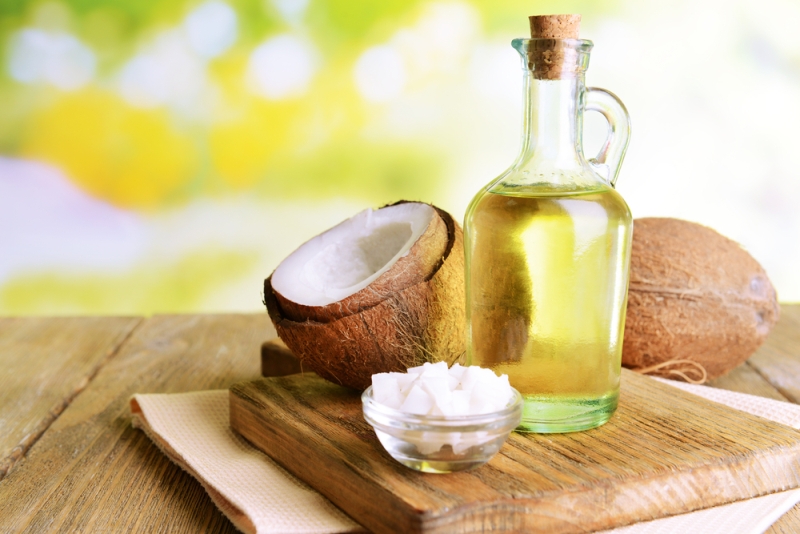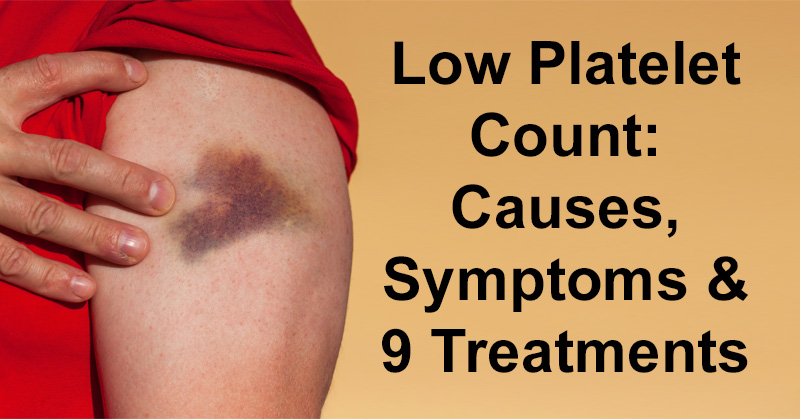Thrombocytopenia, the medical term for low platelet count, is a problem with normal blood clotting and bruising, resulting from low levels of thrombocytes. Thrombocytes are colorless blood cells produced by bone marrow, responsible for helping form blood clots in the arteries and stopping bleeding. Low platelet count raises the risk of internal bleeding, blood clotting and other problems related to blood vessels. Low platelet count causes include autoimmune disease, poor diet and negative reactions to medications. (1) Natural low platelet count treatment focuses on a healthy diet and lifestyle.
Low Platelet Count Causes
- Enlarged spleen
- Reactions to medications and over-the-counter drugs
- Autoimmune disease
- Alcohol
- Poor diet and nutrient deficiencies
- Infections and viruses
- Toxin exposure from the environment
- Pregnancy
- Genetics
- Aplastic anemia

Low Platelet Count Symptoms
- Prolonged bleeding from cuts or wounds
- Becoming bruised easily or developing excessive bruising
- Bleeding under the skin that appears as a rash of small spots
- Bleeding gums and gum disease
- Nosebleeds
- Blood in urine or stool
- Heavy menstrual flows
- Fatigue
- Frequent headaches
- An enlarged spleen
- Jaundice
Low Platelet Count Treatment
1. Improve Your Diet
A Vitamin B12 or Vitamin B9 deficiency can cause low platelet counts. To get more B12 and B9, add beans, citrus fruits, whole grains, green leafy vegetables, beets, cauliflower and asparagus to your diet. You can also take high-quality B12 or B9 supplements. Low platelet count treatment should also include unprocessed, whole foods including fresh fruits and vegetables, herbs and spices. (2)

2. Reduce Alcohol Consumption
People who are heavy drinkers have a higher risk of developing low platelet counts. Research has shown that excess alcohol consumption suppresses blood cell production which prevents blood cell precursors from properly clotting. (3)
3. Reduce Exposure to Toxins
Chemicals from processed foods, such as pesticides, mercury and arsenic, can slow the production of platelets. To help reduce your exposure to harmful chemicals:
- Buy organic produce whenever possible
- Use natural cleaning products and beauty products
- Paint your home with low volatile paints
- Grow your own foods in a garden using organic fertilizers
- Avoid chemical sprays, fragrances and candles
- Use glass or ceramic containers to store leftovers instead of plastic
- Avoid eating large fish that are high in mercury such as tuna, shark or swordfish
4. Decrease Use of Drugs
Aspirin, ibuprofen and other over-the-counter painkillers can thin your blood and negatively affect your platelet levels. To naturally manage pain, try improving your diet to lower inflammation levels. (4)

5. Take Helpful Supplements
Low platelet count treatment can include helpful supplements. (5) Try:
- Vitamin D: Vitamin D plays a key role in the function of the hematopoietic stem cells in bone marrow, which produce platelets. Spend time outdoors to raise your Vitamin D levels.
- Vitamin K: Vitamin K has anti-inflammatory properties that can help control bleeding disorders. Foods rich in Vitamin K include broccoli, Brussels sprouts, kale, spinach and blueberries.
- Sea vegetables: Seaweed and algae provide nutrients and bind to heavy metals in the body to help raise immunity.
6. Protect Yourself from Injuries
People who have been diagnosed with low platelet counts should avoid injuries and infections, which can worsen autoimmune reactions and trigger excessive bleeding. Be careful to avoid injuries related to work, sports or operating machinery.
7. Help Treat Bruises Naturally
Low platelets symptoms include bruising easily. If you notice lots of bruising, you can make a natural bruise cream using frankincense, shea butter, jojoba oil and coconut oil. (6)

8. Reduce Consumption of Sugary Drinks
Sugary, processed drinks can disturb normal platelet production. Drinks that are full of sugar are often also full of artificial sweeteners, synthetic colors, preservatives and other harmful ingredients.
9. Try Wheatgrass
A 2011 study published in International Journal of University Pharmacy and Life Sciences found that wheatgrass can help improve platelet count. Drink 1/2 cup of wheatgrass juice mixed with a little bit of lemon juice each day to increases platelet count. (7)


